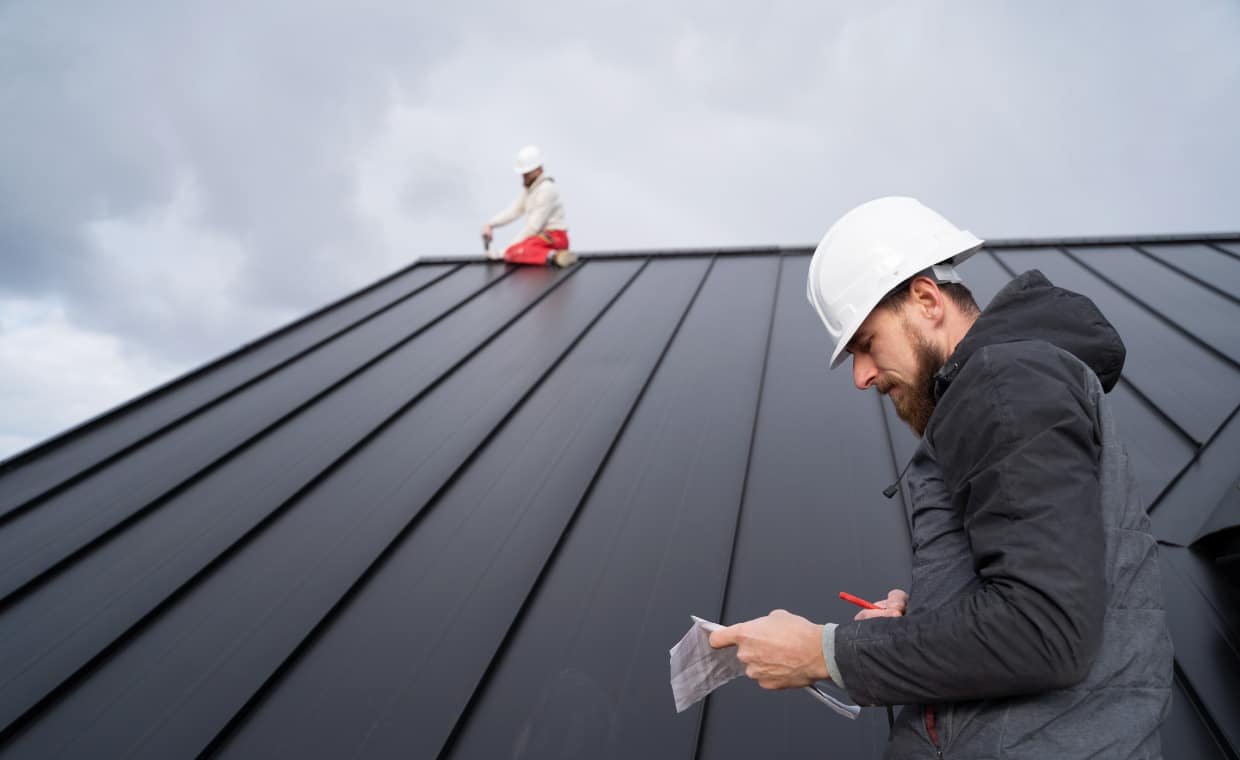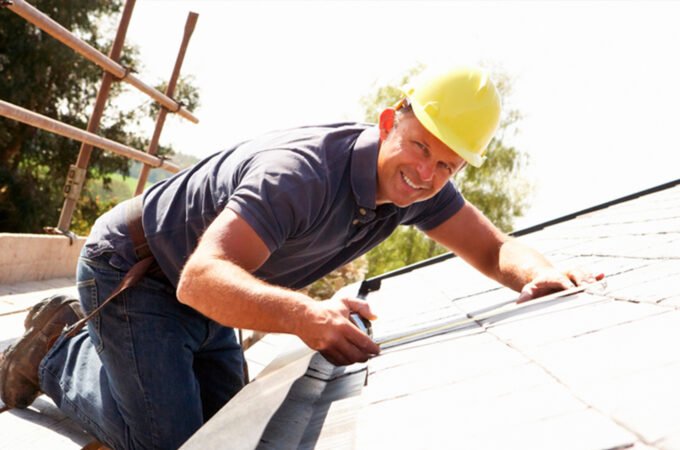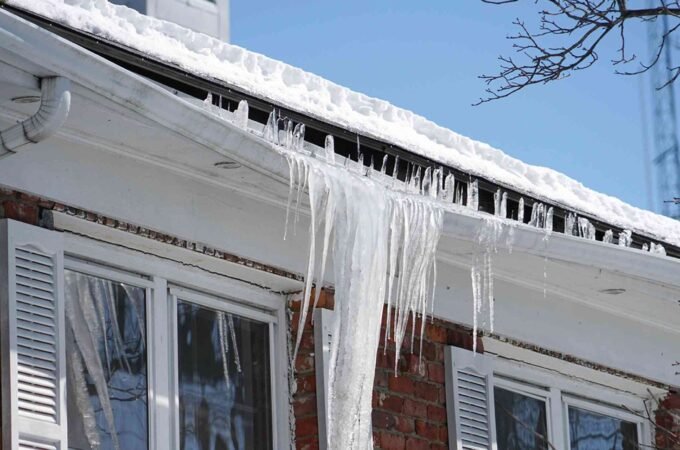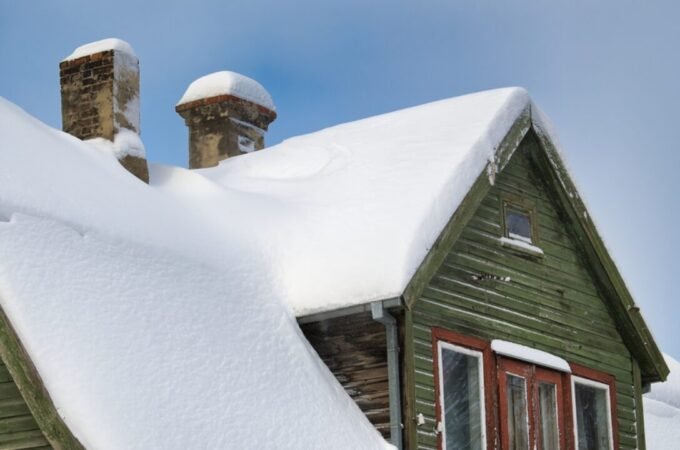
Why a Roofing Company Matters More Than You Think: Protecting Your Home
Table of Contents
ToggleKey Takeaways
- Your roof is a home’s first line of defense against the elements, and professional care can prevent costly problems in the future.
- Regular roof inspections and timely repairs extend the lifespan of your roof and boosts property value.
- Making informed choices when partnering with a roofing company leads to greater peace of mind and long-term savings.
- Understanding new materials and roofing trends can make your home safer and more energy-efficient.
Table of Contents
- How Roofs Keep Your Home Safe
- Why Hire a Professional Roofing Company?
- Factors to Consider When Choosing a Roofing Company
- Maintaining Your Roof: What Every Homeowner Should Know
- Latest Roofing Materials and Trends to Consider
- Common Roofing Issues and Solutions
- Understanding Roofing Costs and Value
- Frequently Asked Questions About Roofing Companies
How Roofs Keep Your Home Safe
Most people underestimate the importance of their roof until a storm, leak, or other emergency strikes. A roof is a critical barrier between your living space and everything the outside world throws at it—rain, snow, hail, heat, and wind. It also helps prevent animals and debris from getting inside your home. According to the National Roofing Contractors Association, investing in proper roof installation and ongoing maintenincreases the roof’s life span and also keeps the overall building structure sound and energy-efficiHavingaving a reliable letsroof, you keep your home dry, insulate it against extreme temperatures, and avoid the often dramatic costs of water intrusion, such as mold growth and wood rot.
It’s not just about surviving the next big storm. Even light rain can wreak havoc if your roofing system is compromised. Enlisting the assistance of Temple TX roofing experts can ensure that minor issues are identified and addressed early rather than letting them become severe problems. With regular care, your roof continues to do its job—protecting your family, your belongings, and the structure itself—from the top down every day of the year. This proactive approach extends your roof’s lifespan and helps you avoid unexpected repair costs. In the long run, investing in timely inspections and maintenance brings peace of mind and long-term savings.
Why Hire a Professional Roofing Company?
While repairing a roof on your own may seem appealing from a cost-saving standpoint, there’s much more at stake than a Saturday afternoon and a bundle of shingles. Professional roofing companies bring invaluable expertise, from proper slope calculation and underlayment selection to detecting less obvious damage, such as soft decking or moisture breaches. They know the industry standards for installation and repairs. When you work with a reputable roofing team, you’re assured of thorough inspections that catch issues a layperson could easily overlook. Safety is another critical reason to depend on professionalism. Roof work is risky; the combination of heights, slippery surfaces, and tools can easily result in an accident. Professional companies utilize safety equipment and techniques that drastically reduce these hazards.
Additionally, licensed roofers are usually insured, which means homeowners are not liable if something goes awry. Many also provide comprehensive warranties for labor and materials, giving homeowners valuable assurance that if a problem develops after installation or repair, it will be addressed efficiently and with no extra cost. Over time, hiring professionals protects your investment and spares you from complications or unexpected expenses.
Factors to Consider When Choosing a Roofing Company
- Credentials: Ensure any company under consideration holds appropriate local licensing and current insurance. It protects you from litigation in the event of injury and offers peace of mind about its legitimacy.
- Experience: Roofing is a skill that’s best honed over time. The more years a company has served the community, the more likely it is to deliver quality, consistent work.
- Local Reputation: Seek reviews from friends, online communities, or neighborhood forums. Longevity and positive local feedback signal credibility and reliability.
- Detailed Estimates: Professional companies provide transparent, itemized estimates that clarify costs, timelines, labor, and materials. This openness helps prevent surprises or unplanned expenses later on.
- Material Quality: Roofing isn’t just about labor. Good companies walk you through material options, explain their benefits, and detail the warranties available. Quality roofing materials are an investment in your property’s long-term durability.
The Consumer Reports guide on finding good roofers is a practical resource for getting more details on the process. It offers homeowners actionable advice on evaluating credentials, comparing bids, and ensuring they get the value they expect. Trustworthy companies see these questions as a sign of an informed customer and happily provide thorough answers.
Maintaining Your Roof: What Every Homeowner Should Know
- Arrange for professional roof inspections yearly and after significant weather events such as windstorms or hail. Early identification of damage can prevent far more expensive repairs down the road.
- Clear gutters and downspouts regularly. Clogged drainage can lead to water pooling, one of the quickest routes to roof leaks and ice dams in colder areas.
- Address the growth of moss, mold, or algae. These can retain moisture and eventually degrade shingles or underlayment, especially on shaded portions of the roof. When you spot missing, warped, or cracked shingles, replace them. Neglecting this step can compromise the integrity of your entire roof system.
- Inspect your attic for water stains, mold, or musty odors. This can indicate problems with roof ventilation, hidden leaks, or insulation issues.
Regular roof maintenance may only take a small portion of your time each year, but the financial rewards are significant. Simple actions—like clearing debris, checking for cracked shingles, or resealing flashing—can prevent more extensive damage, often leading to costly repairs. Addressing minor issues early helps maintain structural integrity and protects against weather-related wear. Over time, this diligent upkeep can extend your roof’s lifespan well beyond its stated warranty, saving homeowners thousands and preserving overall property value and curb appeal.
Latest Roofing Materials and Trends to Consider
Modern roofing is no longer limited to old-fashioned asphalt shingles. Homeowners now have a wide range of options that are tougher, greener, and better-looking than ever before. Energy efficiency is leading the charge. For instance, “cool roofs” made from light-reflective materials help homes remain cooler in the summer, reducing the need for air conditioning and lowering energy bills, as highlighted by the U.S. Department of Energy. These new technologies are a wise investment, not just for the environment but also for the wallet. National averages show that switching to cool roofing can save 10–15% on annual cooling costs.
Other trends gaining traction include recycled and sustainable roofing products, solar tiles that generate renewable power, and impact-resistant shingles that provide extra peace of mind in areas with severe weather. These choices boost durability and sustainability, allowing homeowners to customize their homes for beauty and long-term performance.
Common Roofing Issues and Solutions
Roofs encounter a variety of challenges over their lifetime. Leaks from deteriorated flashing or cracked shingles are among the most common concerns and can cause structural damage if left unchecked. Storms often rip away shingles or dislodge gutter systems, leading to water infiltration. In humid regions, moss and algae can take hold, compromising shingles’ integrity while making the roof look worn out long before its time.
- Leaks: Address them immediately—water intrusion is not just a nuisance; it can quickly escalate to mold outbreaks and rotting support beams.
- Missing Shingles: Even a single lost shingle leaves your roof vulnerable. Prompt replacement maintains a seamless defense against rain and wind.
- Gutter Problems: Blocked gutters prevent rain from draining away, channeling it instead under your shingles or siding where it doesn’t belong.
- Ventilation Concerns: Without proper ventilation, heat and moisture become trapped, shortening roof life and sometimes warping or cracking support structures beneath.
The most effective solution is a proactive approach: address minor problems now and schedule regular check-ups with experienced roofers. This strategy nearly always costs less than waiting until substantial repairs or replacements are unavoidable.
Understanding Roofing Costs and Value
The expense of roofing projects can vary significantly. Roof size, pitch angle, material selection, and architectural features affect labor and material costs. While initial estimates can make a new roof seem pricey, quality installations dramatically reduce the likelihood of future repairs and yield excellent returns during resale. According to the Remodeling 2023 Cost vs. Value Report, homeowners can expect to recover an average of 61% of the roofing cost when selling their home—a solid return for a home improvement project, especially one with immediate curb appeal and instant buyer reassurance.
It’s also worth considering the indirect savings: a solid, well-insulated roof keeps energy consumption down, preventing costly cooling and heating losses. Over a typical roof’s lifespan, these operational savings add up, further improving the overall value proposition of investing in quality roofing services and modern materials.
Frequently Asked Questions About Roofing Companies
- How long will my roof last? Depending on the material, most roofs last 20–30 years. Premium options like metal, tile, or slate often last longer with good care. Regular maintenance and inspections play a significant role in reaching the maximum lifespan.
- When is the best season for roofing?Spring and fall tend to offer the best weather for significant repairs or replacements, but if you discover damage, don’t delay—timely repairs can prevent extensive (and expensive) complications.
- Can I repair my roof myself? Patching a single shingle or clearing gutters is fine for some DIYers, but anything involving structural elements, safety risks, or large-scale replacement is best left to roofing professionals.
- Are extended warranties worth the cost? Warranties are peace of mind in action. They may add a little to upfront costs, but homeowners are protected from expensive repairs or labor charges in unexpected failures.
The choices you make regarding your roof influence your home’s safety, comfort, and financial future. Focusing on proactive maintenance, up-to-date materials, and expert advice puts your home in the strongest possible position for years.






